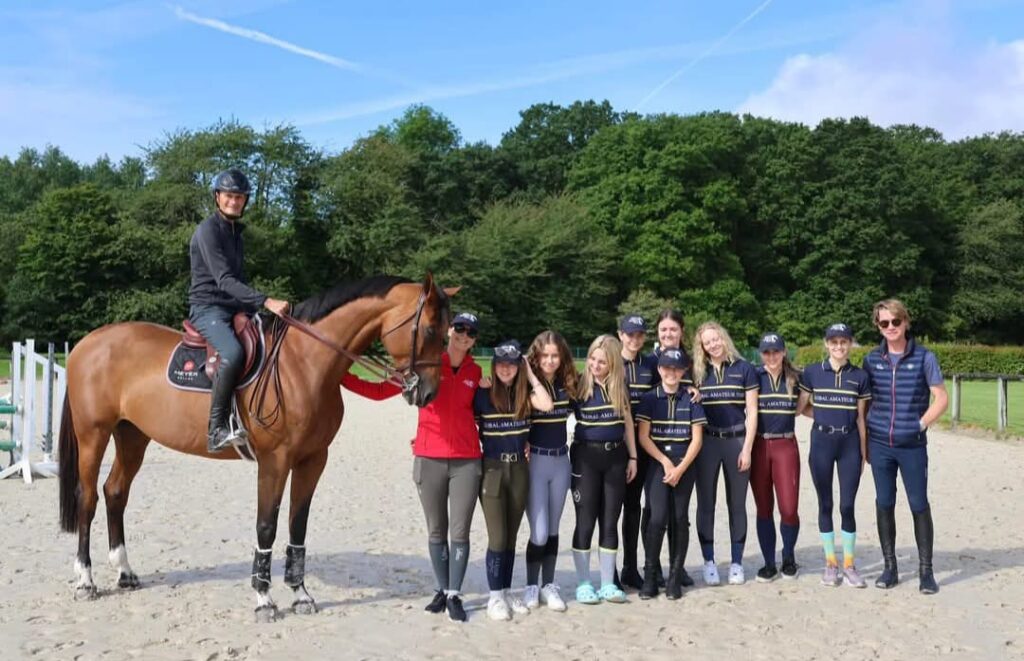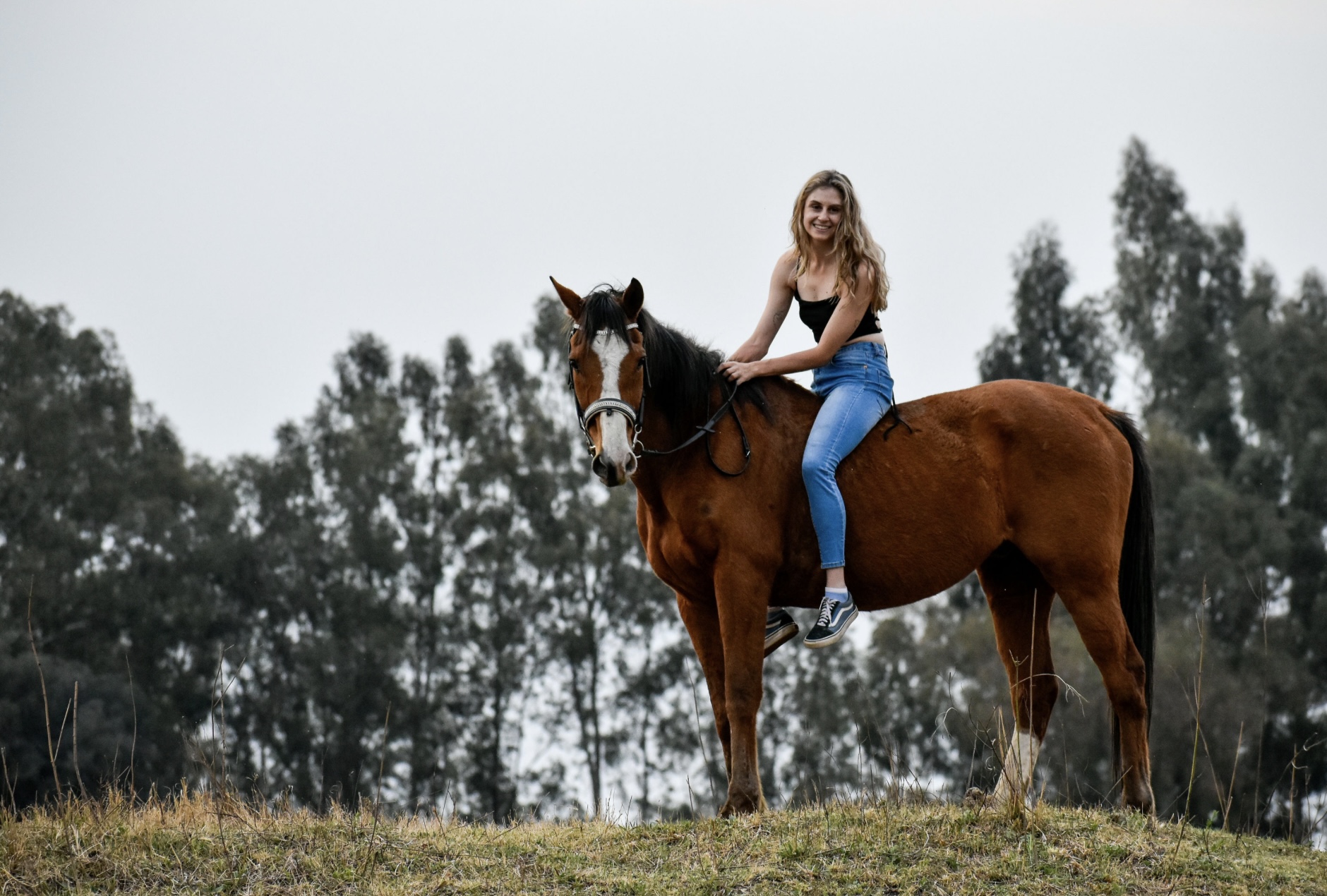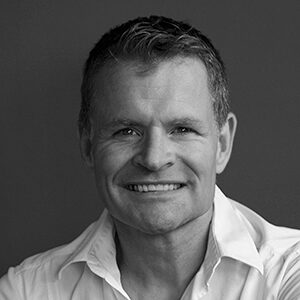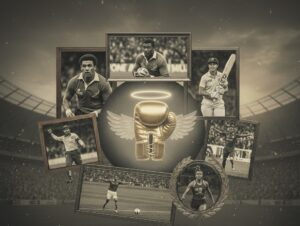Six years ago, Heather Holland took her horse “Wizard” out for a ride.
“Wizard” was no ordinary animal. He was a year into his rehabilitation from a life of abuse and abandonment, rescued with his bridle still embedded in his skin, which hung off his bare bones.
Holland was on a light trot in rural Kyalami when a rabbit ran past, spooking the horse.
“He bucked me . . . he went right, I went left.”
The result from her heavy fall into concrete shards was a shattered tailbone disc.
Holland was out for six months, hobbling around on crutches.
It could have been far worse, but after being thrown off dozens of times she’s developed a good sense of how to fall, notwithstanding this severe injury.
The accident hardly deterred her. Besides, she had important work to do.
Holland does more than show jumping and dressage. She takes broken, damaged horses and rehabilitates them to a level where they are transformed into animals capable of competing. Better still, she often saves them from a life of misery, even death.
“Track horses get dumped – often – and some are shot in the head. Others are donated to the lion park,” she says, confirming racing’s dark secret.
Many race horses don’t get to live out their final years in a lush, comfortable paddock. Horses that once cost hundreds of thousands of Rands can get picked up for nothing once their owners feel they have lost their worth or fail to pass muster.

Holland is 23 and has ridden for 15 years. Since her accident, she only works with damaged horses; animals that have been stabbed, abandoned, tortured, whipped and abused. She has little interest in saddling thoroughbreds.
“One of my proudest moments came when I took one of my rehab horses to his very first dressage show. We went in with no expectations, but we won first place in both classes,” says the former Jeppe Girls student. “It was such an epic reminder that no matter what, you can bounce back stronger than ever.”
Another horse, “Fighting Oliver”, had been smashed in the face. She spent two months in a field soothing him day after day before trying to ride him. He transformed into an accomplished dressage performer.
“The crazy thing is none of them are R300 000 horses. They get dumped, so they come free or as little as R2000.”
She rides out of Nicky de Lange’s Blue Moon Equestrian stables in Kyalami, a haven for horses like hers which she nurses and nourishes before selling them on. There’s a clause in every contract that anything but optimal care cancels the arrangement.
“I’m very particular, I care about them a great deal,” she says.
She competes from time to time, but winning isn’t what drives her; it’s knowing that she’s taken a broken beast and made its life bearable.
Typically, Holland takes in an abused horse and lets it familiarise itself in its new environment among a herd of other horses for two weeks. She then introduces it to a lunge area, a smallish space where they attune themselves to a series of different audio pitches, signalling them to walk, trot or canter.
She never uses a bit – horses often associate this with pain, notwithstanding dressage making it compulsory – and takes a gentle approach constantly.
Given the likelihood of distractions, she calms them by throwing blow-up balls and even toilet paper at them, helping them get used to sudden movements. Only then, when the horse has obviously calmed, will she contemplate saddling up.
“They are so smart, especially the matriarchal mare, whose motherly instincts are remarkable. They tend to adopt you and protect you,” she says. “The great joy is that horses respond well to this type of care, almost always.”
She participates in both jumping and dressage, which she likens to dancing. Jumping is trickier: the atmosphere is usually hyped, which can make an animal jumpy.
“I’m okay now,” she says when reminded of her awful fall. “I’ll never fail to remember how hard the ground was.”
Her dedication had a surprising twist earlier this year when she received an invitation out of nowhere to compete in the Global Amateur Tour in France. For a week she trained with several of the best equestrians in the world and spent time with an Olympic course builder and Karl Cook, a silver medalist from the 2024 Olympics.
She ended fifth and soaked up the chance to learn and compete on the world stage.
“This whole journey has taught me that no matter how tough things get, you’ve got to keep pushing towards your dreams. I didn’t let an injury stop me, and now I’m living my dream.”
Holland’s energy radiates from her, which is just as well.
She has it all going on. She holds down a full-time job as PR manager for Comic Con, and she has a start-up agency that manages and advises on search engine optimisation. For fun, she has a TikTok channel (SassySteeds) where she shares all her fun moments, from training sessions to competition highlights.
“I love telling my story of ‘second chance’ horses,” she says. “I’ll never stop doing this.”







